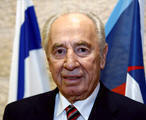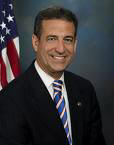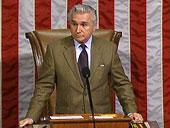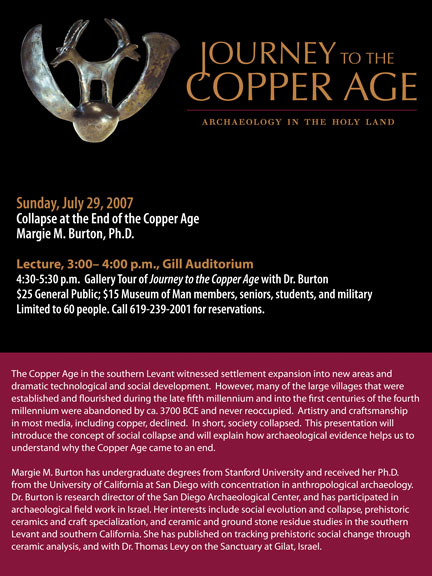San
Diego Jewish World
Thursday
Evening, July
26, 2007
Vol. 1, Number
87
|
Archives Event Tracker HOME Jewish Directory Jewish Grapevine Jews in the News News Sleuths Sports |
| PLEASE SUPPORT OUR ADVERTISERS; THEY ARE HELPING TO BRING San Diego Jewish World TO YOU: Anderson Travel Bubbla Packaging Systems I'm There For You Baby radio show In the Know' radio show JCC Maccabi games Jewish American Chamber of Commerce Journey to the copper age Museum of Man Lecture Series Old Town Trolley Tours of San Diego Seacrest Village Retirement Communities |
Today's Newsmakers... click on their links to go to
their stories








Silverberg
Peres
Blair
Feingold
Feinstein
Schumer Hinchey
Obama
State Department official criticizes U.N. Human Rights Council as a forum
for Muslims' anti-Israel propaganda
(Editor’s Note: Kristen
Silverberg, assistant secretary of tate for international organization
affairs testified today to the Senate Foreign Relations Committee about the
United Nations Human Rights Council. She was critical of the organization’s
bias against Israel. Here is a transcript of her statement)
By Kristen Silverberg
WASHINGTON, D.C.—Since the founding of the United Nations, the United States has worked to make that body a champion for people living under oppressive governments. The United States has worked through the UN to negotiate international treaties on Human Rights, including the International Covenant on Civil and Political Rights and the Convention against Torture and Other Cruel, Inhuman or Degrading Treatment or Punishment.
|
San Diego Jewish World—July
26, 2007 |
We have worked through the UN to provide technical assistance and training. For
example, we are today the largest funder of the Office of the High Commissioner
for Human Rights. And, when necessary, we have worked through the UN to condemn
the actions of governments who have committed serious human rights violations,
such as Burma, Cuba, North Korea, and Sudan. Although we remain committed to
supporting human rights in the multilateral system through the UN, we are deeply
skeptical that the UN’s Human Rights Council will, in the near future, play a
constructive role in our efforts. I am grateful for the opportunity to talk with
you about the problem as we see it and to discuss with you some of the options
for addressing it. |
|
expected resistance from anti-democratic States,
but we were disappointed that many democratic countries with strong human rights
traditions were willing to compromise on the final outcome, making it impossible
to agree even on the most modest safeguards against the problems that led to the
Commission’s loss of credibility.
Because of our deep dissatisfaction with the Council’s structure and rules, we
voted against its creation in March 2006 and did not run for a Council seat that
May. However, we decided to stay actively engaged as an observer at the Council.
In this first year, we have worked actively with our allies and other democratic countries in order to help the Council meet its mandate to protect and promote human rights. Secretary Rice, Under Secretary Burns, Assistant Secretary Lowenkron and I, along with regional Assistant Secretaries as necessary, raised Human Rights Council issues with our counterparts. Assistant Secretary Lowenkron, his Deputies, and I, along with Senior Advisor Ambassador Joseph Rees, traveled to capitals to raise Human Rights Council issues. And of course, our delegation in Geneva, led by Ambassador Warren Tichenor, remained actively involved in Human Rights Council matters.
Unfortunately, despite our best efforts, the Council has been worse than its predecessor. It has passed thirteen anti-Israel actions and three weak, non-condemnatory actions on Sudan, and it has done nothing on Belarus, Burma, Cuba, North Korea, Turkmenistan, Uzbekistan, or Zimbabwe.
(Jump to continuation)
.
{Click the above ad for more
information}
Both sides express pleasure over Arab
ministers official visit to Jerusalem
JERUSALEM (Press Release)—The foreign
ministers of Egypt and Jordan who presented an Arab League peace plan to the
government of Ehud Olmert on an historic visit to Israel, have expressed
pleasure over their reception.
"We have heard a lot of positive commentary, from which we discern an intention
by Israel to work seriously on giving Palestinians an opportunity to achieve
their state," Egyptian foreign minister Ahmed Aboul Gheit said after a series of
meetings in Jerusalem with his Jordanian counterpart Abdulelah Al-Khatib,
Israeli president Shimon Peres and foreign minister Tzipi Livni on Thursday.
The plan envisions the recognition of a Jewish state by the Arab world in
exchange for an Israeli withdrawal from lands captured in the 1967 Middle East
war and an agreed solution to the refugee problem.
Mark Regev, spokesman for Israel’s Foreign Ministry, had earlier called the first visit authorized by the 22-member Arab League as "historic." President Peres sounded positive after his meetings with the two ministers, saying: "The winds blowing in the region now are winds of peace." Jordanian foreign minister Abdel Ilah al-Khatib said: "We are extending a hand of peace on behalf of the whole region to you, and we hope that we will be able to create the momentum needed to resume fruitful and productive negotiations."
The preceding story was provided by the World
Jewish Congress



The Peres Diary |
The office of Israel's President Shimon
from time to time releases accounts of his official activities. We have
been publishing them as they are made available.
Israel's President recounts meeting
with Tony Blair
JERUSALEM—President Peres to Tony Blair: "Your success is our success;
everyone in Israel will help you in your mission – a comprehensive peace
agreement between Israel and the Palestinians"
The President of the State of Israel on Tuesday, July 24, hosted in his
office Tony Blair, special envoy of the Quartet to the Middle East. The
two held a one-hour private working meeting, after which they appeared
before a large group of journalists awaiting them and made a joint
statement.
Behind closed doors, the president told Tony Blair that he is very happy
to see him in Israel as the real envoy of peace, and is hopeful that
Blair's mission will succeed. The president said that the people are
genuinely interested in reaching a peace agreement with the Palestinians
and that there is general consensus both in the Left and the Right in
the matter of resolving the conflict, that will lead to two states for
two peoples living side by side in peace and security. "I do not dismiss
the difficulties," the president said, "but I believe with all my heart
that we are standing on the threshold of a real window of opportunity,
which we must on no account miss."
The president stated that all relevant parties in Israel will harness
their energies in helping special envoy Blair ensure the success of his
mission, and made note of his close and productive cooperation with
Prime Minister Ehud Olmert. Furthermore, Peres said that he believed
Europe and the world as a whole should revert from channeling funds
directly to the Palestinians to providing economic assistance based on
moves that would strengthen the market and the economy, encouraging
international companies and investors to enter the Palestinian market
and create hundreds of thousands of new jobs.
"The direct transfer of funds did not prove itself," the president said,
and expanded on progress made in the joint economic project – the Peace
Corridor – involving Israel, the Palestinians and Jordan, which is
expected to be integrated as a central feature in Tony Blair's mission.
In their appearance in front of the journalists, Blair said he was happy
to be able to again work with Shimon Peres in his capacity as President
of the State, and that he was here to learn and work hard.
"The responsibility on my shoulders is extremely heavy; we shall have to
work hard with the two sides and discuss the problems on the ground, and
there is no person more deserving than him with whom to work on behalf
of peace," said Blair and added that from the few conversations and
meetings he had, he believes there is a concrete and real chance to
achieve peace.

California, Arizona & Nevada
sales positions
|
{Click the above ad for more information}
Russian
firm reports Iran nuclear plant delay
"Today, we can say for sure that to launch the Bushehr nuclear plant this autumn is unrealistic," Ivan Istomin, the head of Energoprogress, a company doing the work for the Russian state-owned firm building the Iranian plant, told Russia’s ‘RIA Novosti’ news agency.
Despite pressure from many countries and the United Nations to halt work on the plant, Russia has said it would stick with the project. Iran claims its nuclear ambitions are to provide for the country’s power needs, but it is widely believed that the Islamic Republic, whose president has threatened to “wipe Israel off the map,” is trying to build nuclear bombs. T
he Russian company building the plant had previously announced a delay in its completion due to payment problems. The plant was originally supposed to open in September 2007.
The preceding story was provided by the World Jewish Congress
Weißensee graveyard lacks funds to
become heritage site
BERLIN
(Press Release)—Europe largest Jewish cemetery, the Weißensee graveyard in
Berlin, will not become a UNESCO World Heritage site for the time being
because of a lack of funds.
A Berlin government official said that in order to file an application to
UNESCO, all 115,000 graves needed to be photographed and registered, for
which qualified personnel and adequate technical equipment were needed.
In the last two years, the German and Berlin regional governments spent
around US $900,000 on the restoration of graves and alleys in the 42 hectare
cemetery. However, Berlin’s Jewish community estimates that more than US$ 50
million will be needed to restore the famous burial site completely and
lastingly.
Meanwhile, it has been announced that Berlin’s new Chabad run Jewish community center will feature a replica of Jerusalem's Western Wall, Judaism's holiest site. The 100-square-meter replica will be part of Szloma Albam House, which is to open in September.
The preceding story was provided by the World Jewish Congress
|
|
Adventures in Cruising
Aboard Holland America
Ryndam
|
Feingold, Feinstein and Schumer join campaign
to appoint special counsel to investigate Gonzales
WASHINGTON, DC (Press Release) – U.S. Senator Dianne Feinstein of California today joined her Democratic colleagues Senators Charles Schumer of New York, Russ Feingold of Wisconsin, and Sheldon Whitehouse of Rhode Island in calling for the appointment of a special counsel to investigate possible wrongdoing by the Attorney General, originating with his statements regarding the removal and replacement of several United States Attorneys, in addition to his testimony before Congress regarding the Terrorist Surveillance Program (TSP.)
In a letter to Paul D. Clement, Solicitor General and Acting Attorney General responsible for matters where Attorney General Gonzales has recused himself, the Senators called for a special counsel to be appointed to examine the Attorney General’s statements on the U.S. Attorney scandal, his testimony before Congress regarding the TSP, and potential charges of obstruction of justice, false statements, and perjury.
Earlier this week, Attorney General Gonzales testified before the Senate Committee on the Judiciary in a Department of Justice Oversight hearing. During questioning by several members of the Committee, the Attorney General gave statements in conflict with his prior testimony before Congress.
Previously, Gonzales had testified that there had not been any “serious disagreement” within the Administration regarding a domestic warrantless wiretapping program known as the TSP. That notion was sharply refuted in testimony by former Deputy Attorney General James Comey, who recounted a disagreement so intense that it almost led to his resignation, as well as that of John Ashcroft, Attorney General at the time. In his testimony this week, Gonzales contradicted himself by admitting that there had in fact been a dispute between the White House—where he was Counsel at the time—and the Justice Department over the TSP.
Additionally, a number of the Attorney General’s answers were in direct conflict with accounts from members of Congress and the Administration. Specifically, the Attorney General responded that TSP was not discussed at a March 10, 2004 briefing, despite a letter from John Negroponte, former Director of National Intelligence, indicating that the TSP was in fact the subject of that briefing. Testimony by CIA Director Michael Hayden also confirms that the TSP was discussed at the March 10 briefing.
The following is a transcript of Senator Feinstein’s remarks at this morning’s news conference:
“I gave a lot of thought as to whether I wanted to join in this effort or not. And I decided that I really had no choice. And I want to try to outline my reasons for that decision here today.
I deeply believe that Americans look to their Attorney General to be above reproach, to be independent, and to be free from political influence. They want a straight shooter who will enforce the law no matter what. But Alberto Gonzales has turned this office on its head.
Rather than be a straight shooter, this Attorney General obfuscates. Rather than demonstrate independence, this Attorney General states that he is dual-hatted, and serves the President as well as the people. Rather than enforce the law without fear or favor, this Attorney General has allowed politics to enter the Justice Department.
And where his mission is to uphold the law, Attorney General Gonzales may have crossed the line and misled Congress or even perjured himself. (Jump to continuation)
(Return to top)
Father of Senator Coleman dies of cancer
WASHINGTON, D.C. (Press Release) The
office of Sen. Norm Coleman (Republican, Minnesota) issued this statement
today: “This morning, Senator Coleman’s father, Norman Coleman, Sr., passed
away after an ongoing battle with cancer. As a decorated World War II veteran,
he will be laid to rest at Arlington National Cemetery.
"During this time of grief, Senator Coleman and his family ask for your thoughts
and prayers.”
The preceding story was provided by the
office of Sen. Norm Coleman
Hinchey to introduce resolutions mirroring Feingold's to
censure Bush and Cheney
WASHINGTON, DC (Press
Release) - Saying that the time has come for Congress to formally condemn the
Bush administration for falsifying its justification to attack Iraq, mismanaging
the subsequent military occupation, and egregiously abusing the Constitution,
Congressman Maurice Hinchey (Democrat, New York) today announced that he will
soon introduce two resolutions in the House to censure President Bush, Vice
President Cheney, and other senior administration officials.
Hinchey's resolutions in the House will be companions to the censure resolutions
U.S. Senator Russ Feingold (Democrat, Wisconsin) will be introducing in the
Senate. Feingold and Hinchey are currently working to develop language for the
censure resolutions that will attract the broadest support and plan to introduce
the measures next week.
"The American people have reached a breaking point with this administration and they are demanding that Congress step up and hold the president, vice president, and others in the executive branch responsible for their actions," Hinchey said. "While President Bush and Vice President Cheney continue to operate as if they are leaders of a monarchy, Congress should censure them and make it clear to this and future generations that their actions are entirely unacceptable. If Congress does not act to formally admonish this White House then the future of our democracy will be placed on a slippery slope in which other presidents may point to the actions of this administration as justification for further abuses of the Constitution. Congress cannot allow such abuses of power and law, which is why Senator Feingold and I will soon introduce these censure resolutions."
The first censure resolution will focus on President Bush and Vice President Cheney's role in falsely stating the case for invading Iraq and their mismanagement of the subsequent military occupation, which has cost more than 3,600 American lives and wounded nearly 27,000 of our military personnel. The resolution will cite Bush and Cheney for making intentionally false statements about Iraq's possession of weapons of mass destruction and for misleading the public into believing Saddam Hussein had ties to Osama bin Laden and al Qaeda. Additionally, the resolution will condemn the president and vice president for failing to plan for civil conflict and humanitarian strife in Iraq that the intelligence community predicted would occur and for distorting the reality of the situation to the American people. The resolution will also reprimand Bush and Cheney for overstretching the military with prolonged deployments that have damaged U.S. efforts to be prepared for other conflicts and has unfairly split apart military families.
Feingold and Hinchey's second censure resolution will focus on President Bush, Vice President Cheney, and other senior administration officials blatant disregard for the law. Among other things, the censure resolution will formally condemn the administration for launching the illegal NSA warrantless surveillance program; instituting and following extreme policies on torture, the Geneva Conventions, and detainees at Guantanamo Bay; the politically-motivated firings of U.S. Attorneys and the refusal to legitimately submit to congressional oversight of the matter; and the issuing of presidential signing statements that amount to an excessive abuse of executive power.
"It is not as if the Bush administration has acted improperly once or twice. This is a sustained assault on our democratic republic and Congress must firmly address this abuse and misuse of power with resolutions of censure," Hinchey said. "History must show that Congress stood up to this administration and formally condemned it. I applaud Senator Feingold for his strong leadership and for taking the initiative to begin drafting resolutions to censure President Bush, Vice President Cheney, and others for their actions. It's an honor and a great pleasure to be working with this extraordinary leader of the Senate and to be doing so on an issue as important as this."
Hinchey and Feingold, who first announced
his plans to offer the censure resolutions in the Senate on Sunday, are
continuing to draft the censure resolutions and are actively soliciting the
input and support of their colleagues as well as their constituents and the
American people at large.
The preceding story was provided by the
office of Congressman Hinchey
Republican Jewish Coalition criticizes Obama
for his willingness to negotiate with rogue states
WASHINGTON, DC (Press Release)—The Republican Jewish Coalition (RJC) expressed today its serious concern with the world affairs experience and leadership credentials of Democratic presidential candidate, Sen. Barack Obama (Democrat, Illinois).
During the Monday night (July 23) CNN/YouTube debate, Obama stated that as President, he would meet "without precondition" the leaders of Iran, Syria, Venezuela, Cuba and North Korea to "bridge the gap that divides our countries." Having not done so, he said, was "a disgrace."
"Sen. Obama ignored that the leaders of Iran and Syria actively support and fund terrorism and seek the destruction of the State of Israel. Unconditionally meeting with them, without holding them accountable for their actions, would only serve to appease and embolden these radical regimes. Sen. Obama's comments raise serious questions about his depth of understanding of the complex issues facing any president. His comments at the CNN/YouTube debate reflect a world view that is both naïve and ill-informed," said RJC Executive Director Matt Brooks.
"Sen. Obama is not
just naïve with regard to world affairs, his ideas are dangerous and wrong for
America," Brooks added.
(Return to top)
Rep. Susan Davis sponsors bill to give
Armed Forces personnel right to Supreme Court appeals
WASHINGTON, D.C. (Press Release) –
The words on the Supreme Court building read “Equal Justice Under Law.” Yet
some service members are denied access to the nation’s highest court. To
correct this inequity in the military justice system, Congresswoman Susan Davis
(Democrat, California) introduced legislation to grant these service members
access to the Supreme Court.
The Equal Justice for Our Military Act would eliminate a troubling disparity in current law by allowing court-martialed service members whose cases involve extraordinary circumstances to appeal for Supreme Court review. By contrast, the government currently has the right to appeal for Supreme Court review in every one of these cases.
Furthermore, the bill would allow the Supreme Court discretionary review of certain cases, a provision supported by the American Bar Association.
“This is a simple matter of fairness,” said Davis, a member of the House Armed Services Committee. “We ask our men and women in uniform to support and defend our Constitution, which guarantees due process, yet we deny some of them that process. The disparity with which defendants and the government are treated under the current law is an inequity that should be rectified.”
Congress created a separate criminal justice system for our Armed Forces, which is governed by the Uniform Code of Military Justice (UCMJ). The UCMJ provides that criminal charges against members of the Armed Forces will be tried before courts-martial and further provides for the review of court-martial judgments by a series of military courts and officials.
According to the Los Angeles Daily Journal, the Honorable Walter Cox, a Reagan appointee who served as chief judge of the Court of Appeals for the Armed Forces in the late 1990s said, "A detainee at Guantanamo Bay has a right to appeal to the U.S. Supreme Court and a military serviceman is shut out."
The legislation has been endorsed by Military Officers Association of America and the American Bar Association.
The preceding story was provided by the office of Congresswoman Susan Davis
Seeking 'agreement in principle' with Palestinians premature
WASHINGTON, D.C. (JINSA)—We didn't say anything about Israeli Prime Minister Ehud Olmert's overtures to Abu Mazen in the wake of Hamas's swift and brutal putsch in Gaza. We did worry about President Bush offering further incentives to Abu Mazen who, we believe, has never been willing and/or able to use them to create a political future with Israel. He can only be less able after losing a war, half of his population base and much of his weaponry.
Therefore, we were totally dismayed to read of Ha'aretz saying, "Israeli officials said Prime Minister Ehud Olmert is ready to discuss 'an agreement of principles' that would create a Palestinian state made up of 90 percent of the land in the Gaza Strip and the West Bank in addition to linking the two with a tunnel."
First, how can Mr. Olmert propose the creation of a Palestinian state or anything else in Gaza? He isn't in it, doesn't control it and can't talk to the people who do.
Which leads to the second point. With whom is he planning to discuss his principles? Abu Mazen? Abu Mazen doesn't control the Gaza Strip any more than Mr. Olmert does. To make a deal covering both territories, Abu Mazen would have to reach accommodation with Hamas, and it appears he is already working on it. Does Mr. Olmert accept that? And at what cost to Israel? Or perhaps the Israeli Prime Minister will discuss his principles directly with Hamas. Will he do it while Hamas is firing rockets at Sderot, importing ever more lethal weapons and insisting it will not only NOT recognize Israel, but will use military force to eliminate it?
Third point: a tunnel?! Controlled by whom? Running under what? Secured how? Tunneling is a favorite Palestinian pastime. The Palestinians were using a stolen Austrian tunnel digger in Lebanon in the early 1980s to hide weapons and fighters before Operation Peace for Galilee in 1982. (Hezbollah is a Johnny-come-lately here.) In Gaza, the Palestinians have been tunneling from Egyptian-controlled Rafah to Israeli-controlled Rafah for years. Tunnels up to 35 meters deep, lined with electric lights, rails and handcars have been used to bring everything from rocket-propelled grenade launchers to cigarettes and whiskey into Gaza (we suspect the whiskey is a thing of the past). The idea of a secure tunnel from Gaza to the West Bank is absurd.
And, since Gaza and the West Bank are at war with each other as well as with Israel, a tunnel would simply allow Gaza fighters and weapons to come to the West Bank and vice versa. This is no to way "strengthens Abu Mazen" if that is Israel's goal.
Bottom line: Israel appears ready to give up on any conditions that would once have been required of the Palestinians for a secure Israel next to a Palestinian state. The Israeli Prime Minister appears ready to let go of the whole thing now - forget President Bush's conditions for "leaders untainted by terror, clean institutions, etc." And Hamas - the long arm of Iran - is calling the shots. Meanwhile, no one in Israel and few in the United States appear to object. Is this demoralization the long-term effect of last summer's war or political opportunism run amok?
Bryen is director of special projects for the Jewish Institute for
National Security Affairs (JINSA)
 Jews
in the News Jews
in the News
-------------------------------------------------------------------------------------------------------- Like you, we're pleased when members of our community are praiseworthy, and are disappointed when they are blameworthy. Whether it's good news or bad news, we'll try to keep track of what's being said in general media about our fellow Jews. Our news spotters are Dan Brin in Los Angeles, Donald H. Harrison in San Diego, and you. Wherever you are, if you see a story of interest, please send a summary and link to us at sdheritage@cox.net and we'll acknowledge your tip at the end of the column. To see a source story click on the link within the respective paragraph. |
*Josh Bolton and Harriet
Miers, respectively chief of staff and former legal counsel of the White
House, have been recommended for citation for contempt of Congress by
the House Judiciary Committee on a 22-17 Democratic-Republican vote. The
two staff members have refused to testify at the congressional probe of
the firing of eight U.S. Attorneys, citing executive privilege.
The Associated Press
story by Laurie Kellman is in today's San Diego Union-Tribune.
*California's two Democratic U.S. Senators, Barbara Boxer and
Dianne Feinstein, tried unsuccessfully to persuade their colleagues
to consider the AgJobs bill independently of the mired bill on
immigration, saying that unless Mexican workers could be hired
immediately harvests would go to waste. But Republicans said
because the workers might end up staying in the country, the bill could
not receive separate consideration. The
story by Nicole Gaouette is in today's Los Angeles Times.
*Brazilian pianist Arnaldo Cohen overcame a faulty
amplification system at the Hollywood Bowl to deliver Falla's "Nights in
the Gardens of Spain" with what Los Angeles Times
reviewer Chris Pasles described as "brilliant, guitar-like
flourishes."
*U.S. Rep. Rahm Emanuel (Democrat, Illinois), chairman of the
House Democratic Caucus, predicts the Democratic controlled Congress
will be able to enact legislation on health care, minimum wage, homeland
security and congressional ethics. The Washington Post
story by Jonathan Weisman is in today's San Diego Union-Tribune.
*U.S. Rep. Bob Filner (Democrat, California), chairman of the
House Veteran Affairs Committee, said recommendations of a bipartisan
presidential commission on caring for wounded military personnel were
fine as far as they went, but did not offer concrete solutions to a
backlog of 600,000 disability claims. The
story by James Gerstenzang is in today's Los Angeles Times.
*Daniel Koshland Jr.,
molecular biologist and philanthropic heir to the Levi-Strauss fortune
has died of a massive stroke at age 87. His
obituary by Thomas H. Maugh II is in today's Los Angeles Times.
*U.S. Senator Joe Lieberman (Independent, Connecticut) said a
bill reported out by a House-Senate conference committee on
anti-terrorism measures "will make it more difficult for terrorists to
enter and operate in the United States." The story by Richard
Simon is in today's Los Angeles Times.
*There is division in the Arab
League whether the foreign ministers of Egypt and Jordan who visited
Israel yesterday were representing just their countries or the Arab
League as well. They said they came in behalf of the Arab League,
but a League official in Cairo said they were not an official delegation
of the organization. They met with Israel's President
Shimon Peres, Prime Minister Ehud Olmert, Foreign
Minister Tzipi Livni and Defense Minister Ehud Barak.
*Television producer Adam Sorkin plans to open a new play in
Los Angeles, The Farnsworth Invention, dealing with the invention
of television. Jimmi Simpson will play inventor Philo Farnsworth,
and Hank Azaria will portray RCA Chairman David Sarnoff.
The
story is in today's Public Eye section of the San Diego
Union-Tribune.
*Dr. Werner Spitz, a forensic pathologist from the Detroit
area, testified in the Phil Spector murder trial that shooting
victim Lana Clarkson most likely committed suicide. The Copley
News Service
story by Matt Krasnowski is in today's San Diego Union-Tribune.
*Under pressure from Mia Farrow, Stephen Spielberg has
written the Chinese government urging it to do more to oppose the
genocide in Darfur, which some accuse the Chinese of helping to
underwrite. Spielberg has been serving as an artistic advisor to
China for the 2008 Olympics., The
story by Russell Goldman is on ABC News
(Return to top)
|
|
(Editor's Note: The U.S.
State Department released today the transcript of a July 25 interview of
Secretary of State Condoleezza Rice by Samir Nader of Radio Sawa, a
U.S.-funded Arab-language station based in Washington DC and Dubai)
QUESTION: Madame Secretary, thank you so much for giving your time. This is the first interview with Radio Sawa, and I appreciate it very much.
SECRETARY RICE: It's good to be with you.
QUESTION: To make it brief, you are going to the Middle East with Secretary Gates and it seems now it's a new situation, and especially you are going after the visit of the Iranian President to Syria, reaffirming his alliance with President Assad. What's on your mind? What would you like to achieve in this visit?
SECRETARY RICE: Well, first, it's to go and to talk with our friends and allies in the region and to make very clear that the United States is going to be very strong in its commitments to a Middle East that is transforming, a Middle East that is secure and a Middle East that is stable. And we will talk both about our important bilateral defense relationships, but also about the important political relationships that we have with allies in the region.
We will obviously talk about Lebanon, about Iraq, about Afghanistan, areas of concern where there has been some progress but where we need to make more progress.
QUESTION: You and the President, you spoke new language on asking Israel to end occupation. Do you think this will convince the Saudis to be a more active player in the coming international meeting that you are going to host?
SECRETARY RICE: Well, I certainly hope that all interested states, states that are devoted to the two-state solution, will look favorably on the international meeting that the President will call. We have work to do. There's preparation to do. There are no invitations that have gone out yet and I want to talk to our allies in the region and our friends in the region about how they see and what they would see to be a useful international meeting.
But the President is just following in the very important tradition that he's begun. He was the first to call, as a matter of policy, for a Palestinian state, for a two-state solution. He was stating very clearly that Israel's future will rest in Israel, in places like Galilee and in the Negev, and that the occupation of the West Bank will have to end and a Palestinian state will need to be established.
QUESTION: How do you feel about the Arab League first visit to Israel today? Are you pleased with this?
SECRETARY RICE: This is a very important step forward -- the Arab League's visit. It is a very good thing that the Arab League is following up on the Arab peace initiative that was reissued, in a sense, at Riyadh. It is a very good thing that Egypt and Israel are going -- Egypt and Jordan are going to Israel.
I hope that there will be more Arab states that will --
QUESTION: The Saudis?
SECRETARY RICE: Yes, well, all Arab states that will take advantage of this opening to develop an Israeli-Arab track to go alongside and to support the Israeli-Palestinian track.
QUESTION: Did you decide on the meeting -- where it's going to be? What's on your mind regarding the meeting? (Jump to continuation)
________________________

Click the ad above to go to the "I'm there for you baby" website
The Jewish Grapevine

|
IN MEMORY—
Jane E. Young, 85, a journalist from Cleveland, died July 22 in the San Diego area. The San Diego Union-Tribune carried a brief obituary.
WASHINGTON, DC (Press Release) – Congresswoman Susan Davis (D-CA) secured $300,000 in federal funding to replace aging buses in San Diego’s public bus system. The funding was included in the transportation spending bill passed Tuesday night in the House. She also obtained $150,000 for the Veterans Village of San Diego
San Diego's Metropolitan Transit System (MTS) has 89 buses that have reached the end of their lives, and replacing these vehicles will curb operating costs and allow MTS to maintain adequate service, reduce operating costs associated with maintaining service, and to provide system reliability that is essential for expansion of transit use.
The
new buses would replace diesel-powered buses with compressed natural gas
buses, which would enhance the region’s air quality, and help the region
to achieve its goal of 100% alternatively fueled vehicles.
“With global warming and reducing our nation’s carbon footprint in the
spotlight, this funding will help San Diego make a difference with a
cleaner fleet of public buses,” said Davis. “But this is more than an
environmental improvement. It will be an upgrade for San Diego’s
transportation infrastructure.”
H.R. 3074 passed the House of Representatives by a vote of 268-153. The bill moves to the Senate.
The Veterans Village of San Diego (VVSD) will get federal funding to help veterans recovering from drug and alcohol addiction. Davis secured $150,000 for the construction of long-term living units at the VVSD.
“The Veterans Village of San Diego will be able to increase their ability to help veterans in need start a new life,” said Davis, a member of the House Armed Services Committee. “These men and women answered when their country called and it only makes sense that their country helps them in a time of need. I am proud to help obtain federal funds for the quality work this dedicated organization does in our community.”
The funding will help VVSD construct apartments for those who recently graduated from the facility’s drug rehab center. Those struggling to overcome their addictions will have the opportunity to live in the units for an extended period of time. The apartments are within close proximity of the support and counseling certain veterans need to remain drug and alcohol free.
The federal funding was included in a larger spending bill (H.R. 3074) for housing programs. The bill passed the House of Representatives by a vote of 263-158. It now moves to the Senate.
The preceding article excerpted information provided by the office of Congresswoman Davis

{Click the above ad for more information}
Visit ancient Qumran and never ever leave your seat
SAN DIEGO—Ancient Qumran: A Virtual Reality Tour included with admission to the San Diego Museum of Natural History’s Dead Sea Scrolls exhibit, lets you get up close and personal to the archaeological site of Qumran and the caves where the Dead Sea Scrolls were found. Through a series of high-resolution panoramic photos of the Qumran site and the surrounding area, the past is overlaid on the present and viewers are transported back to 160 BCE.
The original Qumran site was a 20,150 square foot, two-story structure with a four-story tower, much like a fortress. In later years, it appears that various groups had used this settlement for a more communal, religious lifestyle, and made architectural additions, just like modern room “add-on”s, to meet the needs of the family or community. For example, early archaeologists and the scrolls themselves, speak of a communal dining room, and enough artifacts have been found to verify this. But when the computer modelers tried to fit the dining room into the original fortress-like structure, it was clear that the dining hall was a later addition.
The creators of this inspired twenty-minute computer model used the architectural evidence to virtually lay out the room-by-room journey, inserting both the artifacts discovered, and those presumed from other discoveries. One particularly fascinating large two-story room was designated the Scriptorium. This room contained both benches for sitting and long tables that could easily be used as writing surfaces. The tables were not built to hold heavy objects and were perfectly placed for a scribe to lay out a scroll and read or write on it.
Of great significance to this community was the complex network of their water system illustrated clearly and artistically on this virtual tour. The community relied on runoff water from flash floods, a spring to fill their storage units, and what is thought to be numerous mikvehot. Much of the water carried clay sediments, rich for pottery making, and suggests that Qumran might have been a site of industrial pottery making.
Robert Cargill, a UCLA graduate in student in Near Eastern Culture and Religions, and his collaborator, William Schniewind, chair of the UCLA Department of Near Eastern Culture and Religions, `built the model over a period of fifteen months. They created these extraordinary visual effects using the AutoDesk Maya, one of the most powerful modeling tools available.
According to Jewish.com both men are practicing Christians who have studied Judaism in depth and have a great appreciation for it. As a matter of fact, Cargill demonstrates his fondness for Israel with a tattoo on his forearm that has the Hebrew word for love, “ahava.”

{Click the above ad for more
information}
 The Jewish Sports Fan
The Jewish Sports Fan
 |
Unless otherwise indicated, source for these stories is today's edition of
The San Diego Union-Tribune, to which we gratefully provide the links below.
We do not apply halacha to determine if a player is Jewish; rather, if he or
she has a Jewish parent or has converted to the faith, we count him or her
as a member of our community.
BASEBALL—Nope, Kevin Youkilis isn't going to show the films someday to his grandchildren of Wednesday's Boston Red Sox game against the Cleveland Indians. Not only was Boston shut out 1-0 by Fausto Carmono, but Youkilis personaly was shut out 0-3 at the plate. In one of those at bats he grounded into a double play. And to make matters worse, he was charged with an error in the field. His BA now is .312 ... John Grabow was one of six Pittsburgh Pirate pitchers who were unable to stem the tide of a New York Mets 6-3 victory. Grabow gave up one hit but no runs in two-thirds an inning of relief, edging his ERA down to 5.14. Shawn Green collected two hits in a nine-hit attack by the Mets. One of them was Green's 21st double. He also stole his 8th base of the season...The Houston Astros defeated the Los Angeles Dodgers 2-1 but for Brad Ausmus the game was frustrating. At bat only once, he struck out. His BA now is .248.
HORSERACING—Jockey David Cohen had three mounts at the Del Mar Racetrack, but Happy Celyna in the 1st, Temul in the 4th and Valid's Valid in the 7th all finished out of the money.
{Click the above ad for
more information}

News from the Israel Baseball League |

|
 |
PREGAME
SIGHTS—At Kibbutz Gezer before the game between the Bet Shemesh Blue Sox and the Modi'in Miracle,
one could see Modi'in pitcher Craig Eagle doing stretching exercises, a row of Bet Shemesh batting helmets, and
Bet Shemesh outfielder Alan Gardner and Modi'in coach Tony Ferrara enjoying a laugh together.
Photos by Yechiel Jonathan Stein
Bet Shemesh and Tel Aviv win; only one game
now separates two leaders in IBL inaugural season
By Nathaniel Edelstein
GEZER, Israel (Press Release)— The Bet Shemesh Blue Sox defeated the
Modi'in Miracle 7-4 behind a strong pitching performance from Dominican
right-hander
Juan Feliciano. Feliciano picked up his fifth win with seven innings of
work, giving up three earned runs on six hits while striking out eight
and walking five.
Bet Shemesh's Jason Rees and Johnny Lopez each went 2-for-4 with a
homerun and two RBI apiece. Centerfielder Sean Slaughter and shortstop
Gregg Raymundo each had a homerun as every Blue Sox starter collected at
least one hit on the night at Gezer Field.
Miracle centerfielder Adalberto Paulino went 2-for-3 with a homer and
two RBI, but it wasn't enough as manager Art Shamsky's club fell 3.5
games behind the first-place Blue Sox.
The Tel Aviv Lighting kept within a game of the Sox, defeating the
Netanya Tigers 8-3 in a game at Yarkon Field at Baptist Village in
Petach Tikva. Canadian leftfielder Josh Matlow led the Lightning offense
going 2-for-3 with his first IBL homerun and four RBI to raise his
average to .353. Dominican shortstop Raul Franco added two RBI and two
runs score on a 3-for-3 night.
Netanya's only runs came off homers from Josh Doane, Ty Eriksen, and
Hector De Los Santos, but manager Ami Baran's squad couldn't muster any
more runs and fell into a tie with the Ra'anana Express eight games out
of first place.
Meanwhile, at Tel Aviv's Sportek, the fifth place Ra'anana Express
snapped a three-game losing streak to beat the last-place Petach Tikva
Pioneers 12-3. The loss dropped the Pioneers 12.5 games out of first
place.
Petach Tikva's sloppy defense led to five unearned runs and the Express
offense did its part to capitalize as centerfielder Matt Castillo went
3-4 with two RBI. First baseman Jesse Michel of California chipped in
with two hits and two RBI while Dominican
catcher Juan Ramirez launched his eighth homerun of the season.
1 2 3 4 5 6 7 R H E
Bet Shemesh 1 0 0 1 3 0 2 7 11 2
Modi'in 0 1 2 0 0 0 1 4 6 0
W: Juan Feliciano (5-1); L: Craig Eagle (2-3); HR: Gregg Raymundo (8),
Adalberto Paulino (8), Jason Rees (13), Sean Slaughter (4), Johnny
Lopez (12)
1 2 3 4 5 6 7 R H E
Netanya 0 1 0 1 0 0 1 3 8 3
Tel Aviv 3 0 3 0 2 0 x 8 8 0
W: Mike Etkin (2-0); L: Justin Prinstein (1-3); HR: Ty Eriksen (1),
Josh Matlow (1), Hector De Los Santos (2), Josh Doane (3)
1 2 3
4 5 6 R H E
Ra'anana 1 2 0 6 2 1 12 13 0
Petach Tikva 2 1 0 0 0 0 3 8 4
W: Max Vazquez (2-2); L: Ryan Butkowsky (0-2); HR: Juan Ramirez (8)
Standings:
Team W L % GB
Bet Shemesh Blue Sox 18 7 .720 –
Tel Aviv Lightning 17 8 .680 1.0
Modi'in Miracle 14 10 .583 3.5
Netanya Tigers 9 14 .391 8.0
Ra'anana Express 10 15 .400 8.0
Petach Tikva Pioneers 5 19 .208 12.5
Friday at 10 am the Netanya Tigers visit the Petach Tikva Pioneers
at Yarkon Field at the Baptist Village while the Tel Aviv Lightning
host the Modi'in Miracle at the Sportek in Tel Aviv. At noon the Bet
Shemesh Blue Sox take on the Ra'anana Express at Kibbutz Gezer. For
directions to the fields visit
www.IsraelBaseballLeague.com.

{Marc Kligman, who combines being
a sports agent with his life as an observant Jew, invites you to listen.
Click on the ad above for more information}
IBL announces All-Star game
day schedule
PETACH TIKVA, Israel (Press Release)— The Israel Baseball League (IBL)
has
announced that prior to the first IBL All-Star game on Sunday, July 29,
players will be visiting children battling cancer at Schneider's
Hospital here followed by a homerun derby and then the All-Star Game
itself.
At 2 pm a group of players will give IBL hats and gloves to 150 children
at Schneider's Hospital. The children will be able to spend time with
the players, talk baseball, and get some autographs.
At 3:30 players will arrive at Yarkon Field at the Baptist Village and
will be available to the media.
At 5 pm the All-Star Homerun Derby will commence as representatives
from each team will try to show off their power skills.
At 6 pm the All-Star Game will start. It will be a nine inning game
with extra innings if necessary. The best players from each team will
be on the same playing field for the first time as the North teamof Tel
Aviv, Netanya, and Ra'anana will take on the South team of BetShemesh,
Modi'in, and Petach Tikva to see which region is the best in
the IBL. Bet Shemesh's Eric Holtz will manage the North while theSouth
will be managed by Steve Hertz of Tel Aviv. The league's other managers
will serve as coaches for their respective All-Star teams.
The game will be broadcast on Arutz Sport5 at 6 pm
The preceding story was provided
by the Israel Baseball League
(Return to top)
|
|
We were especially dismayed by the most recent and final session of the Council’s first year, which was focused on completing the “institution-building” package, the rules and systems that define the Council’s operations. At the end of the session, in a back room, in the dark of night, without a vote, a small group of Council members decided to push through a final agenda that singled out Israel as the only country subject to a permanent agenda item and to eliminate the Special Rapporteurs on human rights in Cuba and Belarus, giving those undeserving governments a victory before the Council had acted to address other critical cases.
We found it troubling that some of the most democratic members of the Council supported these measures in order to achieve consensus on the seriously flawed institution-building package. We were particularly disturbed that the decision was made to deny Canada and other allies their procedural rights to call for a vote on the package.
The Commission was a subsidiary body of
the Economic and Social Council and the regional distribution of its 53
seats reflected that organization’s slight Latin American, Eastern
Europe, and Western Group majority. The Human Rights Council, however,
is a subsidiary of the General Assembly, and its geographic distribution
mirrors the substantial Asian and African membership of its parent body.
In its first year, twenty-eight of the Council’s 47 seats were held by
members of the Non-Aligned Movement (NAM), a group that typically
supports economic, social and cultural rights over civil and political
liberties.
Seventeen of the NAM members were also members of the Organization of
the Islamic Conference. The decision of the NAM-dominated membership to
make Israel the primary focus of the Council’s scrutiny has done much to
undercut its credibility. The Council’s membership includes some members
that routinely violate the rights of their citizens, such as Cuba. We
have been clear from the beginning that the credibility of the Council
would depend on its ability to act on the most egregious cases of human
rights abuse globally – to make a difference for the victims of abuse.
We are deeply disappointed in the Council’s failure to act to hold to
account governments that systematically abuse their people.
We believe that the primary responsibility for these failures of the Human Rights Council lies with Member States, rather than the UN as an institution. In the words of one former U.S. Ambassador to the UN, “Blaming ‘the United Nations’ for what happens inside the talk palaces on the East River is like blaming Madison Square Garden for a poor showing by the New York Knicks.” The United Nations deliberative bodies reflect the views of Member States who send their ambassadors instructions.
As one positive outcome of this first year, some of our traditional allies have correctly pointed to the Universal Periodic Review, during which the Council will evaluate the human rights record of each United Nations member state. However, there are some real risks that this process will not work as intended. The cumbersome review process will take at least four years for the Council to review all Member States, and no special importance will be attached to reviewing the governments with the worst human rights records. Norway will be as high a priority as Sudan. Even more important, the quality of the review process and the final decisions that will result from the reviews will be constrained by the extent to which HRC members are committed to putting human rights principles above international politics.
We hope to be wrong in our skepticism about the Council’s future. We hope that Council members, especially the nearly one half of the members that are democracies with good domestic human rights records, will stand up for our shared values at the Council and work to set it on the right track. However, based on what we have seen to date and the underlying structural flaws in the way the Council was created, we cannot be optimistic. We believe the UN should take a leading role in human rights work, but we have serious questions about the Human Rights Council’s ability to contribute materially to such work.
We therefore need to redouble our efforts in other multilateral fora. There are many important ways for the U.S. to engage in multilateral human rights through the UN. Among them are direct technical assistance to strengthen institutions in developing countries and human rights monitoring and training. We have supported increased resources for the Office of the High Commissioner for Human Rights to increase cooperative technical assistance to Member States. It can be far more cost-effective to provide support for fieldwork rather than for a Geneva-based bureaucracy. For example, the UN Secretariat’s Electoral Assistance Division has done good work worldwide in election monitoring and training. UN officials lent logistical and strategic support to over twenty elections in the last year and a half alone, including in Afghanistan, the Palestinian Authority, Iraq, and Burundi.
We also remain hopeful that the General Assembly’s Third Committee can play a constructive role. In both 2005 and 2006, the Committee passed strong resolutions condemning some of the world’s worst violators. We will work with allies to focus on key priorities, in particular on abuses the Council has failed to address.
Additionally, we will strengthen coalitions with our allies as well as encourage better regional partnerships. With the Ministerial-level conference being held in Bamako, Mali in 2007, the Community of Democracies has the potential to become a more robust organization. The U.S. is deeply engaged in the human rights work of organizations such as the Organization of Security and Cooperation in Europe and the Organization of American States Inter-American Commission on Human Rights. This year we increased outreach to the African Union on human rights issues. And, we are in the initial stages of establishing a similar forum for Asian countries to focus on democracy promotion.
As we have seen, the Human Rights Council is a troubled organization that increasingly appears unable to carry out its mandate to promote and protect human rights around the world. We must redouble our efforts to work in effective fora on behalf of the world’s vulnerable people.
(Continued from above)
So we’re calling for an independent special counsel, largely for three reasons:
To look at whether in fact the Department has been politicized;
To evaluate his misleading and often untrue statements to the Congress; and
To look at the Administration’s decision to block any United States Attorney from pursuing charges of contempt of Congress against officials who have refused to comply with Congressional subpoenas.
I have never seen an Attorney General so contemptuous of Congress and his role as the Chief Law Enforcement Officer of the United States.
At least 9 US Attorneys have been fired, all (except possibly one) either for prosecuting corruption cases that the Administration didn’t want prosecuted or not bringing election fraud-related cases, with insufficient evidence, that the Administration did want prosecuted.
Secondly, political considerations were used in hiring, our hearings have shown that: Monica Goodling’s testimony that she “may have crossed the line” by making political judgments about the suitability of a candidate.
And third, political considerations may have been taken into account regarding a case management example: We had testimony from the lead attorney in the huge tobacco case who stated very clearly that she was ordered by Main Justice to lower the penalty the government was seeking against the tobacco companies.
Political considerations were used in employee evaluations: Example – Brad Schlozman admitted in testimony before the Committee that he ordered career staff to change employee evaluations.
One of the U.S. Attorneys asked to resign was Todd Graves of Missouri. His replacement: Brad Schlozman.
Brad Scholzman quickly filed a lawsuit against an organization in Missouri that was registering new voters. That organization was called ACORN. ACORN offered to cooperate. There were four small cases, ACORN said they would help, they would fire the people. Well the U.S. Attorney was in such a hurry to move before the election on the cases, that they even misstated the name of one of the accused and had to redo the documents later.
Now why is this important?
There are two books.
This one book is entitled Federal Prosecution and Election Offenses, Sixth Edition. It dates to January 1995. Underlying section in this book says, ‘Thus most if not all investigations of an alleged election crime must await the end of the election to which the allegation relates.’ That’s been practiced in the Department of Justice since at least 1982 that we have discovered.
All of these rules were weakened or eliminated in a subsequent edition dated May 2007.
Why? So that the Justice Department can move in before an election, bring election fraud cases, and change the entire procedure and practice of this department.
Obfuscation, prevarication, and untruths from the leader of this huge and critical department has reached in my view a point of no return.
Two days ago, I asked a simple question: How many US Attorneys were targeted for firing? The Attorney General said that he didn’t know.
This has been on the front burner for seven months now. Does anyone believe the Attorney General of the United States in charge of the department really doesn’t know how many U.S. Attorneys were targeted for firing? I don’t think so.
On this, and so many other issues, this Attorney General simply has not been straight with the Judiciary Committee carrying out our Constitutional oversight duties, or with the American people.
The time has come for some answers.
I don’t think we can accept, ‘I don’t know; I don’t recall; Well, we’ll get back to you on that’ – and then of course they don’t.
We called again this morning to try to get an answer to that simple question, ‘How many US Attorneys were actually targeted?’ We talked to people who were sitting right behind him at the hearing, ‘Well, we’ll do the best we can.’
That is simply not acceptable.”
(Return to top)
News
Sleuths...
(Continued from above)
SECRETARY RICE: Well, this meeting will be, as the President said, an opportunity to review our progress. It will be an opportunity to make commitments to support the Israelis and Palestinians in their discussions, in their future negotiations. But one of the reasons that I'm going to go to the region now is to consult with people on how to put this meeting together.
The United States doesn't want Made-in-America solutions. We need the entire population of states that are devoted to the two-state solution to work with us. And so these will be very important consultations.
QUESTION: I have to ask you a question about Lebanon. September is the time for the election of a new president. What can you do to help the Lebanese avoid a crisis and elect a president according to the constitution? And are you coordinating with the French on this issue?
SECRETARY RICE: We are, of course, coordinating with all of our partners concerning Lebanon and especially the French, where U.S.-French coordination has been very helpful in, first: getting Security Council resolutions that got Syria out of Lebanon, get its forces out of Lebanon; in getting the resolution that established the tribunal to prosecute the perpetrators of the assassination of Rafiq Hariri. So yes, we're coordinating very closely.
But the United States is also working very closely with the Lebanese Government, the legitimate Lebanese Government. That means in terms of economic assistance, political support, and indeed in helping, as a part of an international effort, to help the Lebanese security forces reform and become more capable. I would like to say it is a little more than a year since the war in Lebanon began in July -- on July 12th of last year. And that was a terrible experience for the Lebanese people, a terrible experience for the region and a terrible experience for the world.
But I think nobody would have expected that the Lebanese army would now be deployed throughout the country for the first time in decades, that the Lebanese army would be taking on extremists in the Palestinian camps, and yet committing to the future a better life for the people who had lived there. The Lebanese Government has done some very extraordinary work and we should recognize that.
QUESTION: There's rumors that you may visit Libya in September. Today, the French President is visiting. Can -- is this true or just --
SECRETARY RICE: Well, I don't have any dates or plans, but I certainly hope to visit Libya. Libya made an important strategic decision to get rid of its weapons of mass destruction. As a result, it has put itself on a path that is leading to investment in Libya by Western companies which could not invest there before. I know that American companies are very interested in working in Libya. And so I certainly hope -- and we, by the way, are -- have appointed an ambassador to Libya. So I sincerely hope that I will be able to visit there soon.
QUESTION: There's lots of speculation in Washington, I hear, from many people that President Bush will never leave the White House without deterring Iran from developing a nuclear weapon. What do you say about this?
SECRETARY RICE: I would say that the President is committed to a diplomatic solution because we believe diplomacy can work. We are working very closely with our allies, working very closely with the UN Security Council Permanent Five as well as the elected members. We've had two Security Council resolutions on Iran. There is a growing course of financial institutions and private companies that will not do business with Iran, because Iran is in that terrible category now of being under a Chapter 7 resolution and a lot of private enterprises don't want to do work because of the reputational risk and the investment risk. We're going to continue to pursue our options within the Security Council and also with those who wish to tighten their -- the financial sanctions and financial measures against Iran even if it's outside the Security Council.
QUESTION: Can I ask about the Wall Street article? There was a report yesterday that Syria is grabbing territory from Lebanese land, like about 4 percent equal to Arizona, and they are not helping, according to the UN envoy, in the demarcation of the Shebaa Farms. How do you view these problems?
SECRETARY RICE: Yes, well, I can't comment on the specific article, but I can tell you that I have never seen Syria do anything helpful for Lebanon. They occupied Lebanon, they have tried to keep their influence there. They have tried to intimidate Lebanon and its leaders. And we know that the UN is now working on the Shebaa Farms issue. We look forward to that report.
But Syria should begin by what was required of it in Resolution 1559: demarcate the border with Lebanon, treat Lebanon like an independent state, a sovereign state, send an ambassador to Beirut. These would be positive signs that Syria understands that Lebanon is not a client of Syria; it is a proud and sovereign, independent state with proud and sovereign people who want nothing but to control their own future in a democratic way.
QUESTION: There is -- do you recognize the Rabin deposit? The Syrians -- Assad gave a speech last week, put a condition that any negotiation with Israel -- Israel should recognize the Rabin deposit that Secretary Christopher --
SECRETARY RICE: No, this is just Syria, again, playing games. I'm quite certain that when Syria shows that it is prepared to engage in policies that are stabilizing to the Middle East, that -- rather than destabilizing, when it stops allowing foreigners to -- foreign terrorists to come across its territory into Iraq, when it stops intimidating the Lebanese, when it stops engaging in activities in the Palestinian territories that are opposite of what is needed for a two-state solution, that it will be entirely possible for Syria to promote its own interests in a stable Middle East.
But while the United States has no problem if Syria and Israel wish to seek peace, and I just want to be very clear, the United States is not standing in the way of Syria and Israel seeking peace. But Syria -- it is Syria's behavior that has kept it isolated.
QUESTION: If we could -- something for history. There are so many books written about you. What would you like to be remembered by at State Department?
SECRETARY RICE: Oh, I'll worry about history a little bit later. I've still got 17 months of very intensive work. I hope that in the Middle East we can make real progress on helping the forces of moderation in the Middle East, helping democratic forces in the Middle East. You know, the Middle East is a wonderful region with energetic people, people who are proud, people who want the best for their children. They don't want to live in a world in which young people are encouraged to be suicide bombers. I believe that the people of the Middle East want a better and more prosperous future.
And in the next 17 months, I expect to be fully devoted to that: to helping the Palestinians get at least closer to statehood so that Israel and Palestine can live side by side, helping Lebanon to continue its progress toward democracy and sovereignty, to helping the people of Iraq to put aside their differences and build stability, and to doing what the United States has always tried to do, which is to stand for principle and to help friends who want nothing but a better and more democratic life.
QUESTION: I wish you a successful trip, and thank you so much.
SECRETARY RICE: Thank you. It was great to be with you.
 The
foremost environmentally friendly packaging company, Bubbla,
seeks sales personnel throughout the three-state area to
demonstrate and sell its packaging systems. We offer sales
assistance, payment for pre-qualified customer demonstrations
and a high commission structure for independent representatives.
To find out more, email us at
The
foremost environmentally friendly packaging company, Bubbla,
seeks sales personnel throughout the three-state area to
demonstrate and sell its packaging systems. We offer sales
assistance, payment for pre-qualified customer demonstrations
and a high commission structure for independent representatives.
To find out more, email us at

 News Sleuths:
Mideast
News Sleuths:
Mideast

